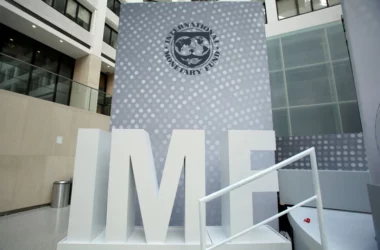
By Baba Galleh Jallow
Many years ago I was a student here at Armitage. I belonged to Fulladu Kunda. In those days, we were allowed to go to town only twice in the week: during outings on day afternoons, and during Friday prayers.
If you were caught in town at any other times without permission, you were suspended for three weeks. A similar fate awaited you if you were caught in places like “Bahind” and River Side which were out of bounds for students. Then one day, I found myself sitting right where you are sitting today, graduating from Armitage and thinking about the challenges and opportunities I would encounter in life after Armitage.
Over the years I have come to realize that while I left Armitage physically, I never left Armitage emotionally; and Armitage has never left me. I have always carried with me a deep love of Armitage and some very important lessons for life I learned here at Armitage.
I learned one such lesson when one day I decided to “dodge” into town without permission. Unfortunately, I ran into our strict Principal, Mr. Abdoulie Ceesay of blessed memory, who we used to call Mborr. Meeting Mborr in town was perhaps the worst thing that could happen to you. And so I quickly tried to hide but I knew that Mborr had seen me because our eyes met. I was the Deputy Seyfo then and just could not imagine what would happen when he called me. So it was a very restless evening for me. The next morning, I was walking near the basketball court when I saw Mborr near the library. He called me over and when I came he said to me: “Seyfo, lawmakers should not be lawbreakers.” I said “Yes sir”. He said, “You can go.” I was perhaps one of very few students who were ever caught in town and not suspended for three weeks. Rather than punish me, Mr. Ceesay taught me a lesson that has stayed with me to this day and has inspired me to always do the right thing when entrusted with a position of responsibility.
From that day too, I started developing and practicing the tactic of punishment by forgiveness was so helpful in dealing with strong headed students here at Armitage, while serving as head boy of Gambia High School, and in dealing with people in the various institutions I have been lucky to work ever since. It has also nurtured in me a hatred of the injustice and violation of human rights which happen when lawmakers become lawbreakers.
Another important lesson I still carry with me from my Armitage days came from our jovial but strict literature teacher Mr. Akwa. Even though I was one of his best students, Mr. Akwa would always say to me, “May you have a hard time.” I always laughed when he said this but I wondered why Mr. Akwa would pray for me to have a hard time. I knew he meant no harm, but I wanted to know just why he would always say that to me. So one day I said to him, “But Mr. Akwa why do you always pray that I have a hard time?” He said, “I mean may you have a hard time studying hard.” From that moment, studying hard took on a new meaning for me and I realized more strongly that our parents and teachers ask us to study hard and work hard because they know that while studying and working hard are challenges, they also offer us opportunities to succeed in life.
Then there was the lesson I learned from Mr. Agyeman, our interesting woodwork teacher, also a Ghanaian. Whenever he was explaining something in class or telling us one of his interesting stories, Mr. Agyeman would keep saying “You see, there are many ways to kill a cat.” And he would go on to demonstrate how you could kill a cat by smashing its head, throwing it in the well, or hanging it up a tree among other methods. Of course, Mr. Agyeman was not telling us what to do if we wanted to kill a real cat. He was teaching us that there are always multiple ways of approaching and dealing with any situation, or of solving any problem.
In essence, Mr. Agyeman was teaching us that we always have a choice how to respond to any challenge or opportunity we encounter. We can always choose what to do; we can choose the easy way out; or we can choose to do the right thing, however difficult and uncomfortable that might be.
And then there are the two lessons I learned from the late Justice Abdou Karim Savage who was a guest speaker at one of our speech and prize-giving ceremonies. I’m not sure this is still the case at Armitage but when I was a student here, many students loved using bombastic language. Some students used big words to demonstrate their mastery of the English language or just for fun. Students liked to repeat bombastic statements made by teachers or guest speakers at graduation ceremonies.
Some of us liked quoting Shakespeare or marveling at some bombastic remark or Latin quote made by Principal Ceesay during Assembly or by our teachers in class. And so we were very excited and loudly clapped and shouted when as the guest speaker Mr. Savage advised us against using “highfalutin terminologies”. We also shouted and clapped when Mr. Savage said Armitage school was “a microcosm of a macrocosm”.
We soon understood him to be asking us to avoid using big words and that the secret to speaking and writing good English is using simple words and short sentences. That lesson has stayed with me to this day and has been extremely helpful in improving my English. And in saying that Armitage was a microcosm of a macrocosm, Mr. Savage was teaching us that Armitage is a small version of the larger world outside. He was also teaching us that the challenges and opportunities we encounter while students at Armitage are smaller versions of the challenges and opportunities we will encounter in life after Armitage.
I share these lessons with you Armitage students today because they have served me well since I graduated from Armitage and because I know they will serve you well if you remember them both while you are students here and after your graduation. Always remember that a lawmaker should never be a law breaker, you will develop a greater sense of justice and responsibility, you will never violate anybody’s human rights, and you will never condone the violation of your own human rights or the human rights of other people by any authority or individual. And may all of you have a hard time studying and working on your dreams. Remember that when your parents and teachers ask you to study hard and work hard, they are asking you to do so in order to succeed. If you don’t have a hard time studying or working, you will still have a hard time succeeding at school and in life. And as you study and work hard both here and in life after Armitage, avoid using highfalutin terminologies. Always use simple words and sentences when you speak or write English. You may know the meaning of a big word, but you always run the risk of using it in a wrong context, which could be very embarrassing. And read, read, read. That’s the only way you can improve your English.
And whenever you are faced with any challenges or opportunities, remember that you always have a choice how to react to them. There will be some times when you will encounter difficult situations, situations in which you have to choose carefully because the way you react to it could make or break you forever. Taking one wrong action or making one wrong decision could lead you down a path of lifelong regret. Taking one right action could pave your way to personal fulfilment and success. And so in every situation, always choose to do what you know or feel to be right.
And for those of you graduating today, remember that Armitage is a microcosm of a macrocosm. It is a small version of the world outside. When you pass out from Armitage into the larger world, you are graduating from a small school into a very large school – what we may call the school of life in which everybody is a student. No one ever graduates from the school of life, however old or highly educated they are. So keep in mind that while you are graduating from Armitage, you are not graduating from being a student. And just like at Armitage, the harder you work and do the right things in the school of life, the more you are likely to succeed in achieving your dreams.
When you graduate from Armitage, you are also graduating into adulthood; you are transitioning from childhood to adulthood. You will no longer have the protective walls of Armitage around you, and you will have to swim or sink in the rough sea of life out there. You will increasingly face the challenge of having to make your own decisions, standing on your own feet and finding your way around the world.
Graduating from Armitage is a challenge and an opportunity for you to have a clear vision of what you want to do in life after Armitage, what you want to become in life. And you need to think seriously about what you must do to become what you want to become in life. Graduating from Armitage was the vision you had when you came here. And you knew you needed to study hard to pass your exams and behave well to remain a student so that you can graduate someday. Your challenge at this point is to accept the reality that if you must succeed in life after Armitage, you must know what you want and you must do the right things in order to get what you want in life. Success in life rarely comes on a silver platter, even if you were born in the lap of luxury. Just like success at Armitage requires hard work, success in life after Armitage also requires hard work. And as you leave Armitage, remember that every challenge you face offers you an opportunity to work hard to overcome it and therefore succeed in getting what you want. Also remember that every opportunity you have in life after Armitage represents a challenge for you to work harder for bigger opportunities.

The challenges and opportunities you will encounter in life after Armitage are so many and so complex that they defy simple prescriptions for success. Life by nature is unpredictable, and sometimes, the road to hell is paved with good intentions. However, we can safely suggest that one of the best ways of navigating the big wide world out there is to always have good intentions, to always keep an open mind and to continuously nurture a sense of responsibility, discipline, humility and unfailing respect for the dignity and rights of your fellow human beings. Be always ready to admit and correct your mistakes if you make them, learn to say sorry, and always do unto others as you would like others to do unto you. And remember that both at Armitage and in life after Armitage, success requires hard work. You all have worked hard to reach this point in your lives. You must keep working hard in order to reach your next destination and to realize your dreams and ambitions. And always remember: every challenge is an opportunity and every opportunity is a challenge.
May God bless you all and grant you success in life after Armitage.
Baba Galleh Jallow was guest speaker at Armitage Senior Secondary School Speech and Prize Giving Day On 29th June 2019












